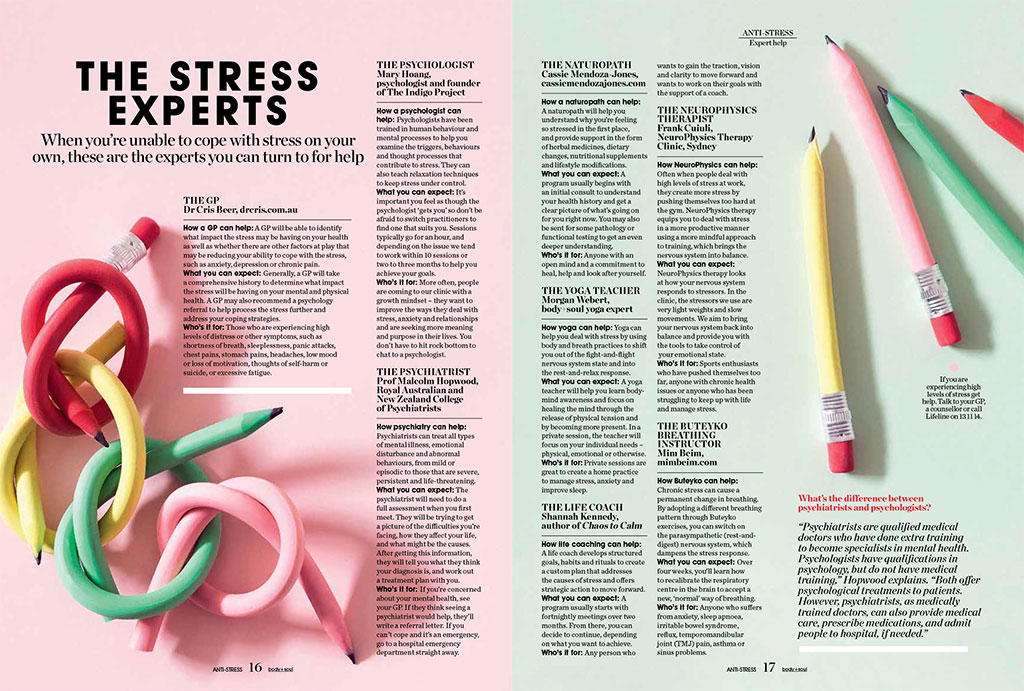
How can a GP help someone who’s dealing with stress?
A GP will be able to identify what impact the stress may be having on your health as well as identify whether there are other factors at play that may be reducing your ability to cope with the stress such as anxiety, depression or chronic pain. A GP will also be able to refer under a mental health plan for you to see a psychologist to help work through coping strategies for stress (10 visits per year with a significant government rebate). GPs can often be a great source of support during a time of stress and someone whom you can confidentially confide in and trust with your personal situation.
How does a GP differ in their approach to stress to other professionals?
GPs in general have a holistic perspective and will be able to assess all aspects of your health to determine how the stress might be impacting you m and make appropriate referrals to specialists or therapists as required. Many GPs are also trained to specifically help you process and deal with the emotional aspects of stress and the mental health impacts.
What can someone expect when they see a GP for stress?
Generally, if you present for stress a GP will take a comprehensive history from you and determine what impact the stress will be having on your mental and physical health. They then may take your blood pressure (which can elevate during times of stress) to make sure this is still within healthy limits and may also order some basic blood tests to make sure your body is otherwise healthy and their are no other factors impacting on your body’s ability to cope with the stress. The GP may then recommend a psychology referral to help process the stress further and address coping strategies. The initial appointment may go for 20-30 minutes depending on your need and typically the GP will ask that you return every few weeks depending on your situation.
What kind of person do you recommend should see a GP for stress?
If you are experiencing high levels of physical and/or emotional distress or other worrying symptoms associated with your stress such as shortness of breath, sleeplessness, panic attacks, chest pains, stomach pains, headaches, low mood or loss of motivation, thoughts of self-harm or suicide, or excessive fatigue then it is recommended that you see you GP.
